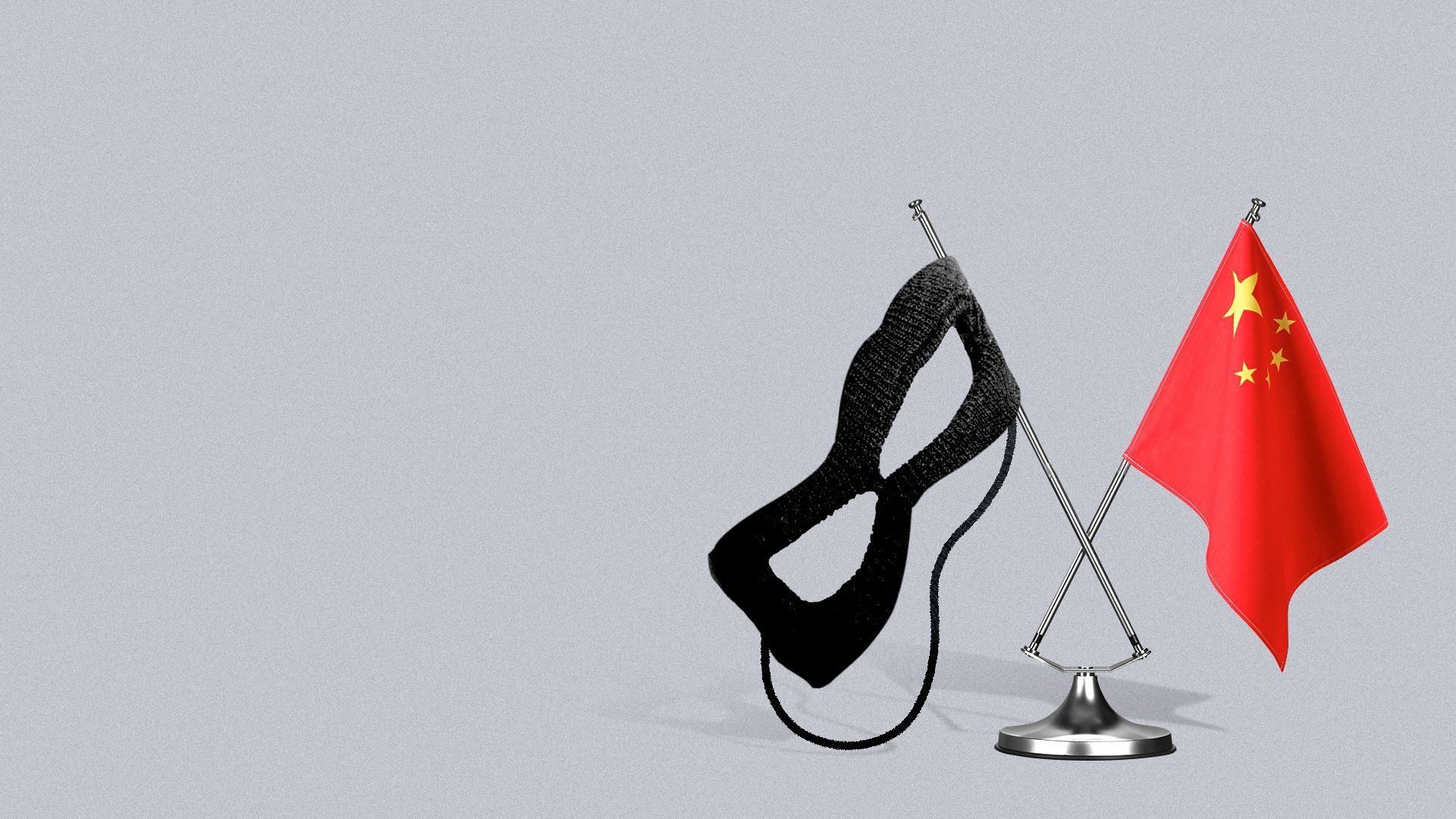China's consulates do a lot more than spy
Add Axios as your preferred source to
see more of our stories on Google.

Illustration: Aïda Amer/Axios
Every country spies. And many countries — including the U.S. — use their diplomatic outposts to do it. But for years, China has used its embassies and consulates to do far more than that.
Why it matters: The Trump administration's recent hardline stance against China's illicit consular activities is a public acknowledgment of real problems, but it comes at a time when U.S.-China relations are already dangerously tense.
Driving the news: Last week, the U.S. demanded that China close its Houston consulate in order to "protect American intellectual property and Americans' private information," White House National Security Council spokesperson John Ullyot said in a statement.
- In response, the Chinese government ordered the closure of the U.S. consulate in Chengdu, a facility nestled in China's more remote inland region that served primarily as a visa-issuing office for Chinese hoping to visit the U.S., and was not a major hub for U.S. intelligence activity.
Yes, but: The Houston consulate wasn't China's most important espionage hub.
- "San Francisco is the real gem but the U.S. won’t close it," a former U.S. intelligence official told Axios.
- It indicates the Trump administration is likely making an example of the Houston consulate in a bid to achieve its goal of a reduction in Chinese espionage activities without taking an even harsher measure, such as closing the San Francisco or New York consulates.
The Chinese government has long used its embassy and consulates in the U.S. to exert control over student groups, collect information on Uighurs and Chinese dissident groups, and coordinate local and state level political influence activities.
Surveilling Uighurs: Leaked classified Chinese government documents have revealed that Chinese embassies and consulates are complicit in the ongoing cultural and demographic genocide against Uighurs.
- The CCP has sought to track down Uighurs who have left China and force them to return, with orders to place them in mass internment camps “the moment they cross the border."
- China's embassies and consulates have also collected information on Uighurs abroad and submitted that information to Xinjiang police.
- Consular officials have frequently refused to renew Uighur passports, telling them they must return to China in order to obtain new documents — only to be disappeared into camps as soon as they do.
Controlling Chinese students: The Chinese embassy and consulates keep close tabs on Chinese students in the U.S., occasionally sending them political directives and quietly organizing demonstrations.
- The Chinese embassy and consulates have paid students to demonstrate in support of visiting Chinese leaders, instructing them to crowd out anti-CCP protesters. They have also asked Chinese Students and Scholars Associations (CSSA) presidents to hold study sessions on party thought and to send back photos of the sessions to ensure compliance.
- “I feel like the tendency is that the consulate tries to control CSSAs more and more,” one CSSA president told me in 2018.
Supporting United Front organizations: Chinese diplomatic officials regularly meet with leaders of U.S.-based organizations tied to the United Front Work Department, the political influence arm of the CCP, and preside over the ceremonies and banquets held by these organizations.
- One such organization, the National Association for China’s Peaceful Unification, has branches in more than 30 U.S. cities. Its members issue statements in support of China's official foreign policy positions, and the Chinese embassy and consular officials encourage them to engage in local U.S. politics.
The bottom line: Dealing with bad behavior by diplomats is a highly sensitive geopolitical issue that can easily result in damaged relations.
Go deeper ... Mapped: Where U.S. and Chinese embassies and consulates are located
